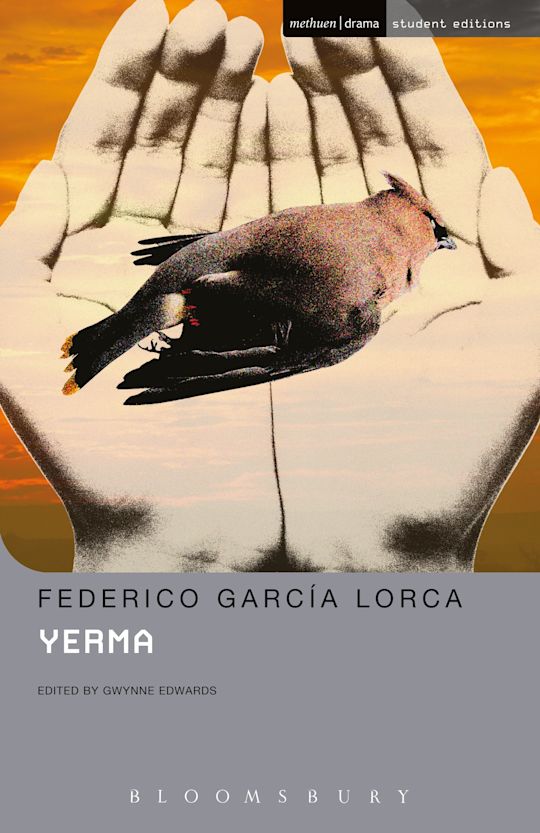The desperation of an empty womb.
Yerma is a woman obsessed with the idea of having children. She has been married for two years to Juan, a hardworking and practical man with whom she cannot conceive.
Víctor, a young man Yerma was in love with in the past, is now married to María, Yerma’s friend. This couple has children, representing the happiness and fertility that Yerma so deeply desires and envies when visiting her friend, who is pregnant again.
To alleviate her anguish, “The Pagan Old Woman” suggests that Yerma seeks less conventional methods to become pregnant, but Yerma, though desperate, still has some moral reservations. When Juan begins to suspect Yerma of infidelity due to her desperation to have a child, she visits Dolores, the healer, in a desperate attempt to find a solution to her infertility, but nothing seems to change. Additionally, her closeness to Víctor rekindles old feelings and makes her question what might have been.
When Yerma attends a pilgrimage hoping for a miracle of fertility, facing gossip and social pressure for not having children, she becomes overwhelmed and confronts Juan in a moment of absolute desperation. In a final, desperate confrontation, Yerma kills Juan, believing he is the cause of her infertility, thus destroying any future hope of motherhood. Yerma ends up feeling empty and desperate, realizing that her deepest desire will never be fulfilled.
RELEVANT INFORMATION:
The main themes of the play include motherhood, the unfulfilled desire to have children, social pressure, gender expectations in a traditional society, the desperation and destructive consequences of unfulfilled desire, and the struggle between personal desire and social norms.
Yerma is one of the most important and recognized works of the author, widely studied and performed since its publication in 1934. The play has been translated into numerous languages and adapted into various theatrical and literary productions, reflecting its lasting impact and continued relevance in the world of literature and theater.
The literary work of Federico García Lorca has been translated into several languages, and his work as a writer has been recognized with numerous awards: Premio de la Crítica Literaria, Premio Nacional de Literatura de Cuba, Premio de la Crítica Literaria for his essays, Premio Nacional de Investigación Cultural, Premio Iberoamericano de Poesía Pablo Neruda, Premio Reina Sofía de Poesía Iberoamericana. His work has been honored with distinctions such as the Orden Alejo Carpentier, Orden Félix Varela, Medalla 30 aniversario de la Academia de Ciencias de Cuba, Medalla Fernando Ortiz, Distinción por la Cultura Nacional, Distinción Raúl Gómez García, among others.
His plays and his life have been brought to the big screen six times by major national and international film and television directors.
AUDIOVISUAL POTENTIAL: TV Series, Miniseries, Film, TV Film.
AVAILABLE LANGUAGES: Spanish, French, English, Arabic, Turkish, Italian, Greek, Georgian, Portuguese, Indonesian, Polish, Romanian, Dutch, German, Swedish, Icelandic, Hindi, Croatian, Filipino, Macedonian, Finnish, Korean, Slovenian, Japanese, Chinese, Afrikaans.


